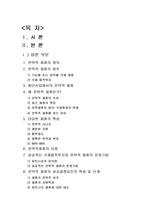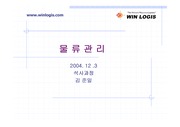

-
서지정보
· 발행기관 : 한국경제지리학회
· 수록지 정보 : 한국경제지리학회지 / 23권 / 1호 / 1 ~ 17페이지
· 저자명 : 박소현, 권규상, 박소영
초록
본 연구는 기업 간 거래망을 활용하여 지역 간 경제적 연계를 확인하고 경제적 상호의존성에 기초한 기능적 경제권을 설정하는데 그 목적이 있다. 기존의 경제권은 이미 알려진 행정도 경계나 문화적 동질성을 기준으로만 설정되거나 실증자료를 활용하더라도 통근, 인구이동, 화물흐름 등 경제활동을 충분히 설명하지 못하는 자료에만 의존하였다.
본 연구는 이러한 한계를 극복하기 위해 한국기업데이터의 CRETOP+ 데이터베이스를 활용하여 실제 기업 간 거래망을 구축하고, 커뮤니티 발견법을 적용해 우리나라의 기능적 경제권을 파악하였다. 분석결과 거래망에 따라 6∼7개의경제권이 도출되었다. 특히 수도권, 충청권, 강원권을 통합한 하나의 거대한 경제권역이 형성되어 있었으며, 전북, 전남은 서로 간의 기업 간 거래빈도가 매우 낮아 호남권으로 묶이기보다 별도의 경제권을 형성하고 있는 것으로 나타났다. 대구, 경북의 경제권과 부산, 경남의 경제권이 각각 존재하는 것으로 나타났지만 울산, 경주, 포항은 도 경계를 넘어서 별도의 권역을 형성하고 있는 것으로 나타났다. 이를 통해 본 연구는 향후 국가균형발전정책에서 실증 자료에 기반한 정책공간의 설정이 필요함을 주장한다.영어초록
The study aims to identify economic interdependencies between regions and define functional economic areas of Korea by analyzing inter-firm transaction networks. Previous research has relied on pre-given administrative boundaries or cultural homogeneity and used data such as commuting, population movement, and cargo flows which could not fully explain economic activities. To overcome the limitations, this study applies a community detection method to inter-firm transaction networks derived from the CRETOP+ database of Korean corporate data. The novel dataset and the network analysis enables us to identify Korea’s functional economic areas based on actual inter-firm linkages. The result shows that there are six to seven economic blocs in the networks as of 2018. In particular, one huge economic bloc is formed integrating the Seoul metropolitan area, Chungcheong, and Gangwon provinces. Meanwhile, North Jeolla and South Jeolla provinces form two economic blocs separately rather than being tied up in one bloc due to the low frequency of transactions between each other. The two big economic blocs of Daegu-Gyeongbuk and Busan-Gyeongnam exist, and interestingly, Ulsan, Gyeongju, and Pohang form a separate middle-sized bloc across the administrative boundaries. The results reveal that the future balanced national development policies should be implemented based on functional economic areas derived from empirical data.참고자료
· 없음태그
-
자료후기
-
자주묻는질문의 답변을 확인해 주세요

꼭 알아주세요
-
자료의 정보 및 내용의 진실성에 대하여 해피캠퍼스는 보증하지 않으며, 해당 정보 및 게시물 저작권과 기타 법적 책임은 자료 등록자에게 있습니다.
자료 및 게시물 내용의 불법적 이용, 무단 전재∙배포는 금지되어 있습니다.
저작권침해, 명예훼손 등 분쟁 요소 발견 시 고객센터의 저작권침해 신고센터를 이용해 주시기 바랍니다. -
해피캠퍼스는 구매자와 판매자 모두가 만족하는 서비스가 되도록 노력하고 있으며, 아래의 4가지 자료환불 조건을 꼭 확인해주시기 바랍니다.
파일오류 중복자료 저작권 없음 설명과 실제 내용 불일치 파일의 다운로드가 제대로 되지 않거나 파일형식에 맞는 프로그램으로 정상 작동하지 않는 경우 다른 자료와 70% 이상 내용이 일치하는 경우 (중복임을 확인할 수 있는 근거 필요함) 인터넷의 다른 사이트, 연구기관, 학교, 서적 등의 자료를 도용한 경우 자료의 설명과 실제 자료의 내용이 일치하지 않는 경우
찾으시던 자료가 아닌가요?
지금 보는 자료와 연관되어 있어요!
문서 초안을 생성해주는 EasyAI





